VICTIMS and survivors of the Bloody Sunday massacre in 1972 were remembered in London’s Westminster over the weekend.
Organised by the Terence MacSwiney Commemoration Committee [London], the event brought campaigners together with MPs and Troubles victims to mark the 51st anniversary of the tragedy in Derry.
On January 30, 1972 fourteen civilians died after being shot by members of the British Army's Parachute Regiment during a civil rights protest in the city.
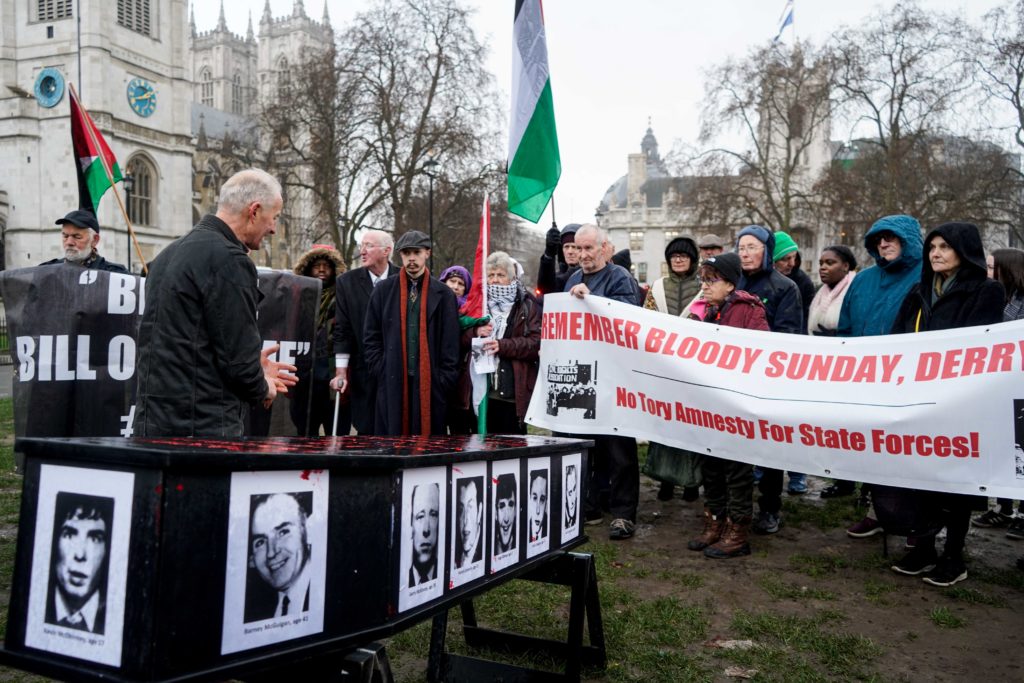 Protestors braved the cold to commemorate the Bloody Sunday victims on Sunday, January 29 (Pics: Ronan Glynn)
Protestors braved the cold to commemorate the Bloody Sunday victims on Sunday, January 29 (Pics: Ronan Glynn)“As a committee we were honoured to remember the victims and survivors of Derry's Bloody Sunday in January 1972 outside the British Parliament,” a spokesperson for the Committee said following the event held on Sunday, January 29.
“Despite the cold weather and the rain, it was heartening to see such a good turnout.”
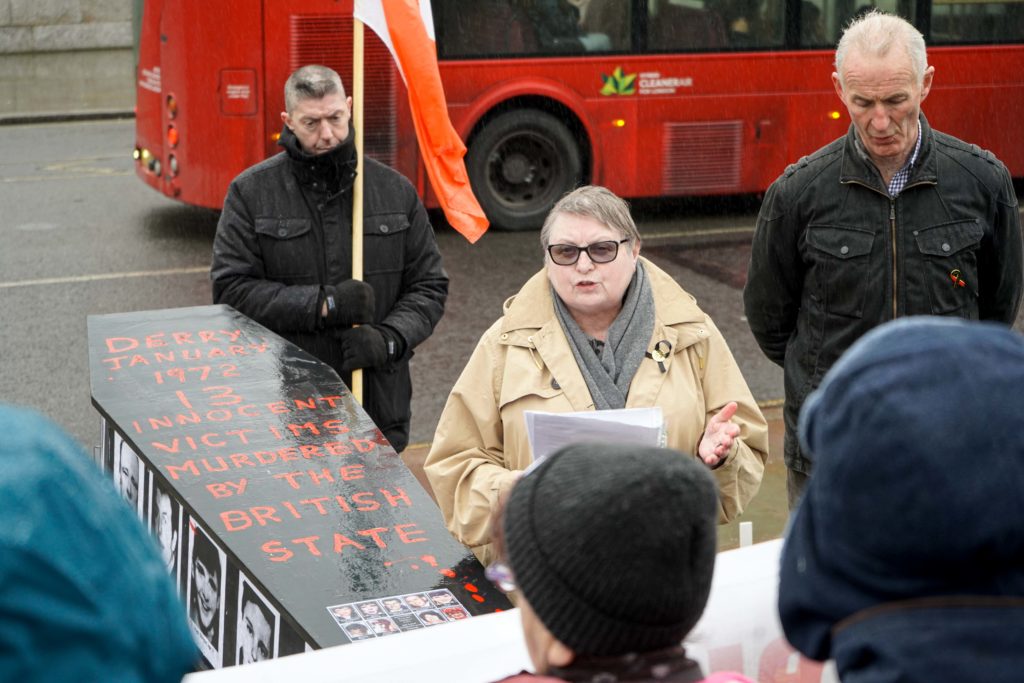 Campaigner Jean Hegarty, whose brother was killed in the massacre, spoke at the event (Pics: Ronan Glynn)
Campaigner Jean Hegarty, whose brother was killed in the massacre, spoke at the event (Pics: Ronan Glynn)Among those in attendance was Jean Hegarty whose brother Kevin McElhinney, 17, was one of the British Army’s fourteen victims.
Ms Hegarty spoke about the “long and painful journey” that the families of the Bloody Sunday victims have been on in more than five decades that have now passed since the atrocity took place.
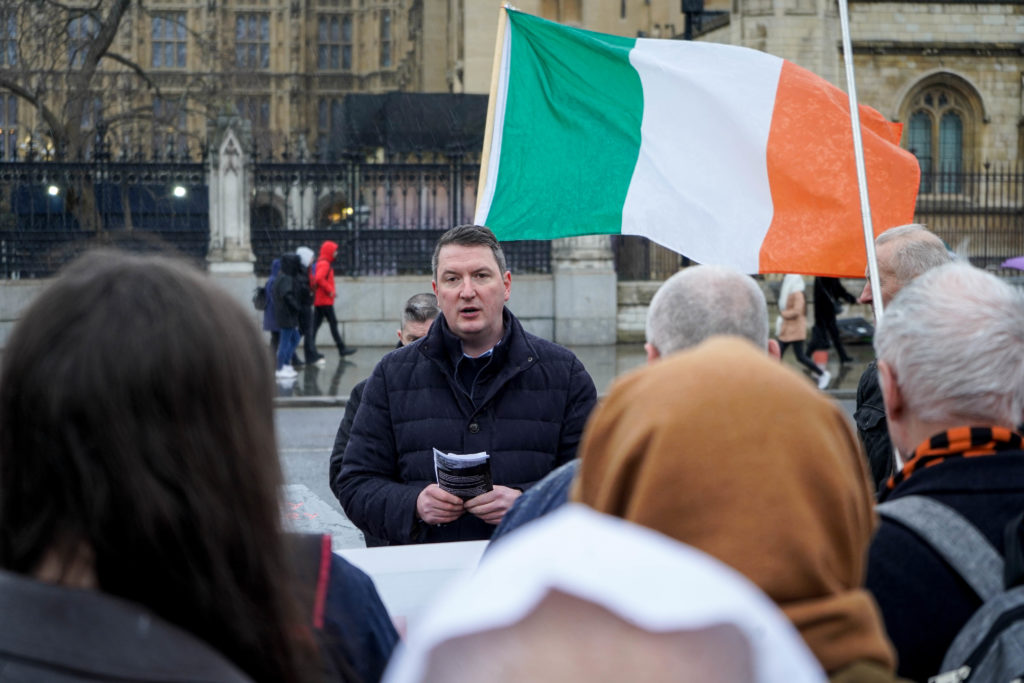 John Finucane MP addressing the event (Pics: Ronan Glynn)
John Finucane MP addressing the event (Pics: Ronan Glynn)She also praised the support that the families have received from the Irish community in Britain over the years.
John Finucane, Sinn Féin MP for North Belfast, also spoke at the event, whose own family continues to campaign for the truth behind the murder of his father, the human rights lawyer, Pat Finucane.
British Labour MP and former Shadow Chancellor John McDonnell also joined the commemoration.
During his speech he reflected on the work that the former Greater London Council (GLC) undertook to encourage better understanding of Irish history in London before calling for such programmes “to be revived given the current political context”.
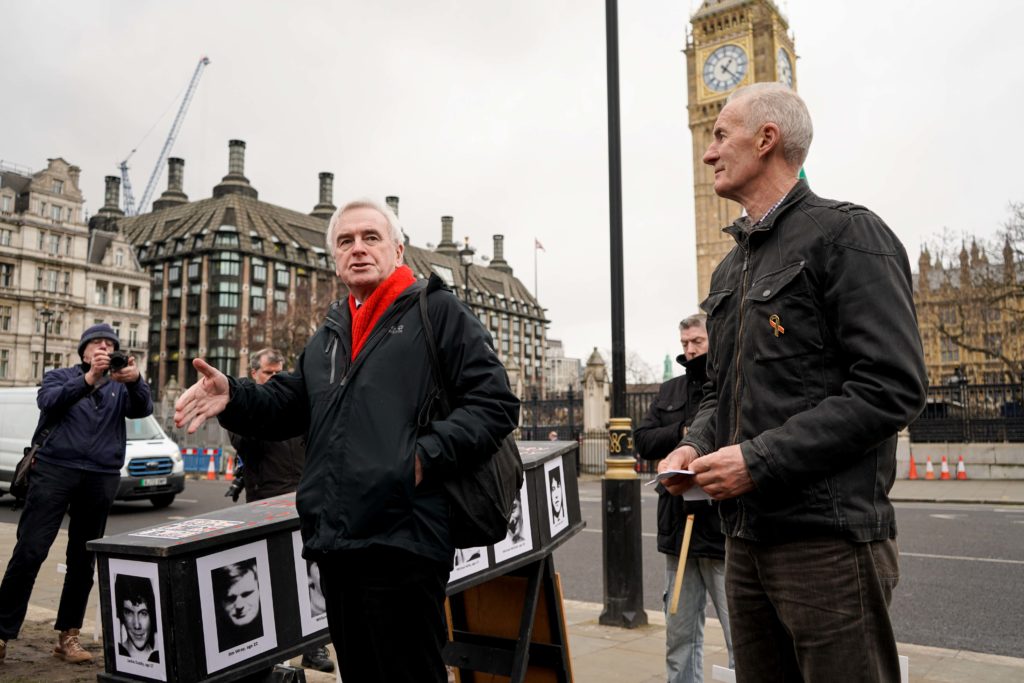 Labour MP John McDonnell also spoke at the event held outside Parliament
Labour MP John McDonnell also spoke at the event held outside ParliamentOther speakers on the day included Grace Cowan of the Stop the War Coalition, Pat Reynolds of the Irish in Britain Representation Group (IBRG), and veteran campaigner for the Irish community in London Jim Curran.
The topic of the ongoing Troubles legacy bill, currently passing through Westminster’s legislative process, was also raised at the gathering.
“The turnout we had demonstrated clearly that the Irish in London totally reject this Tory government's Legacy Bill which is, in truth, little more than a 'cover-up' bill for British crimes in Ireland,” a Committee spokesperson said.
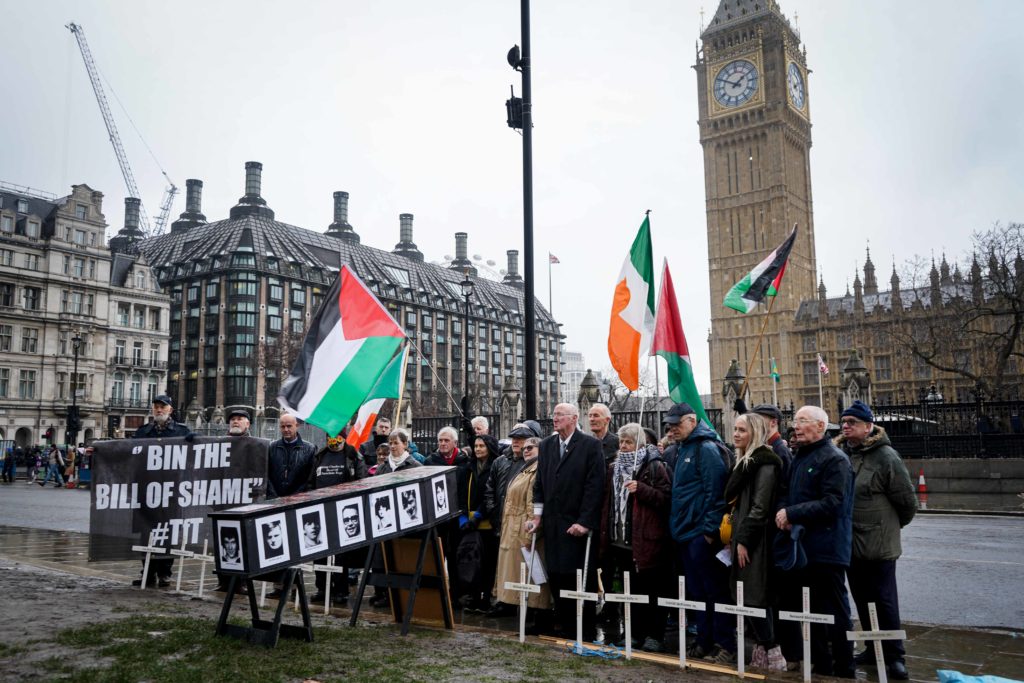 The protest called for the Government's Troubles legacy bill to be scrapped
The protest called for the Government's Troubles legacy bill to be scrappedThe Government’s Northern Ireland Troubles (Legacy and Reconciliation) Bill seeks to limit prosecutions for crimes committed in Northern Ireland during the Troubles period.
It was formally introduced into the House of Commons on May 16, 2022, where the Bill passed on July 4, 2022.
As of January 24, it is back in the House of Lords for its Committee Stage hearing.
“The Bill is currently going through Committee Stage in the House of Lords but will return to the Commons if amended so there needs to be a renewed effort to bin this bill of shame,” the spokesperson added.

